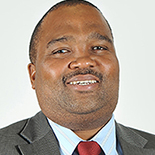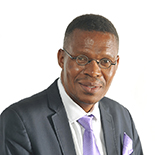
Greetings to everyone
I am once again pleased to update you about Council's work. For the very first time, we adopted a blended approach to our meeting in order to comply with all Covid-19 protocols and directives. Some of our Council members joined the meeting in person at the Vanderbijlpark Campus, while others joined the meeting virtually.
The issues that our ordinary meeting of Thursday, 19 November, dealt with are outlined below.
 |
My term as Council chairperson will expire on 24 November 2020 and Mr Tiego Kgomo's term as deputy chairperson expired on 21 September 2020. I want to thank Council for re-electing me as Council chairperson for a further three-year term. It is indeed an honour and a privilege to serve the NWU in this capacity. The support of Council and the University Management is greatly appreciated. |
|
Congratulations to Mr Bert Sorgdrager, who was elected as deputy chairperson, also for a term of three years. Mr Sorgdrager is an experienced member of Council who also serves on Council's Executive Committee. He is also the president of the NWU Convocation. I look forward to continuing our working relationship for the benefit of the university. I want to thank Mr Tiego Kgomo for his leadership and insight in the handling of Council matters during his term as deputy chairperson. His advice and support to the chairperson has always been invaluable. Mr Tiego Kgomo remains a member of Council and I look forward to his continued advice and support. |
|
|
Prof Dan Kgwadi, the principal and vice-chancellor, presented recent highlights and achievements of staff and students at the university. These are in the fields of teaching-learning, research, community engagement and support departments. Prof Kgwadi emphasised that one of the fundamental drivers of change facing many organisations today, including those in the higher education sector, is the 4th Industrial Revolution, which presents both opportunities and threats. The university is implementing its digital business strategy to take full advantage of the opportunities presented by the 4th Industrial Revolution. |  |
| He also highlighted that the funding of higher education in South Africa is under increasing pressure due to current economic conditions that are worsened by the impact of Covid-19. 2020 has been a difficult year for many institutions across the globe and the NWU was no exception. The VC reiterated that the primary objective for management was to ensure that the academic year is completed successfully. This was mostly achieved through the introduction of online teaching and learning activities and other support mechanisms. We are satisfied and pleased that the university is on track to complete the academic year successfully. Click here to view the VC's presentation. | |
 |
Council approved the revised proposal by management that the 2021 academic year for first-year students should commence on 17 March 2021 and not 15 March 2021 as previously approved by Council on 10 September 2020. The revision was necessitated by the need to have enough time to implement the registration and orientation programme. |
|
Council approved the mid-year performance report which will now be submitted to the DHET. The Covid-19 pandemic has forced faculties and all teaching-learning support departments to explore new ways of teaching, learning and assessment, inclusive of online and distance education for contact students, and supporting distance students without the added value of support at a remote tuition centre. The pandemic has negatively affected the university's performance but despite the challenges, Council is satisfied with the way in which management overcame most of these. |  |
 |
Council approved the current NWU strategy in November 2015. It is now an opportune time to review and revise some of the elements of the strategy to ensure its relevance and responsiveness to the current internal and external environments. One of the reasons for the revision is to ensure that the university responds to the issues presented by the 4th Industrial Revolution. |
|
The university's Digital Business Strategy (DBS) aims to embrace the 4th Industrial Revolution and to guide the transformation of all aspects of the NWU business. In the strategy development process adopted at the NWU, the internal and external environments are reflected in a set of common strategy assumptions which are developed by the executive team and updated annually. Council approved the revision of the following elements:
|
|
|
Council approved the university's Annual Performance Plan (APP) for 2021. The APP serves as an important input into the budget process and determination of strategic projects. The approved plan will be submitted to the Department of Higher Education and Training. |
 |
 |
The current strategy (2016-2020) was approved by Council on 23 June 2016. Council approved the new 2021-2025 strategy and looks forward to its successful implementation. |
|
Council approved the new UODL structure which will not result in additional cost to the university. Council further approved the placement of the UODL in the portfolio of the DVC: Teaching and Learning. |
 |
 |
Council approved the 2021 budget, including the budget for the planned infrastructure developments, and the minimum fees payable by students. Of importance are the following: |
|
|
|
Council noted the report regarding progress made by the university at various levels of operation to counter the impact of Covid-19. This includes the preparations for the 2021 academic year. Council expressed appreciation for these efforts and will continue to monitor the situation. |
 |
 |
Council adopted the final report by the external review panel. Council is pleased that the review process was done in accordance with the Department of Higher Education and Training scorecard and the results will play a key role towards ensuring compliance with the department's future assessment requirements. Council will adopt a pragmatic approach towards the implementation of the recommendations of the external review panel. Council regards the evaluation process as a crucial element for quality enhancement. |
|
As per my previous communique, the NWU and Prof Refilwe Phaswana-Mafuya, Deputy Vice-Chancellor: Research and Innovation, have agreed on the termination of their employment relationship. A selection panel has been established in terms of the Statute and Rules for the appointment of Office Bearers. The panel will commence with the recruitment and appointment process as a matter of urgency. |
 |
We are very satisfied with the way in which the university is conducting its business, especially during these challenging times.
Once again, I want to congratulate the university management and Council for ensuring that the NWU remains focused on its objectives. I wish all members of the university community a well-deserved rest. Please take care.
Kind regards
Dr MB Tyobeka
Chairperson: NWU Council
| For more information please contact Amanda van der Merwe. |